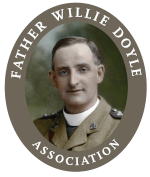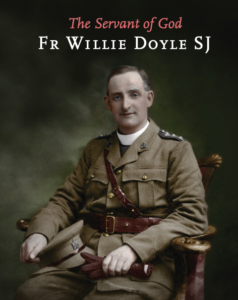The Catechism of the Catholic Church has the following to say about the virtue of temperance.
1809 Temperance is the moral virtue that moderates the attraction of pleasures and provides balance in the use of created goods. It ensures the will’s mastery over instincts and keeps desires within the limits of what is honourable. The temperate person directs the sensitive appetites toward what is good and maintains a healthy discretion: “Do not follow your inclination and strength, walking according to the desires of your heart.” Temperance is often praised in the Old Testament: “Do not follow your base desires, but restrain your appetites.” In the New Testament it is called “moderation” or “sobriety.” We ought “to live sober, upright, and godly lives in this world.”
To live well is nothing other than to love God with all one’s heart, with all one’s soul and with all one’s efforts; from this it comes about that love is kept whole and uncorrupted (through temperance). No misfortune can disturb it (and this is fortitude). It obeys only [God] (and this is justice), and is careful in discerning things, so as not to be surprised by deceit or trickery (and this is prudence).
Temperance was certainly one of Fr Doyle’s characteristic virtues. He had a very hearty appetite, but he restrained it, both as a penance and as a form of self-mastery. Circumstances in the war also meant that, like many of the soldiers, he sometimes had to go without food. But on many other occasions he also gave his food away to the troops.
Fr Doyle was also a friend and supporter of Fr James Cullen SJ, the founder of the Pioneer Total Abstinence Association. This movement, which is still going strong, was established to help combat excessive alcohol consumption, a real social problem in Ireland, both then and now. Fr Doyle was on the governing council of the Pioneers, and Fr Cullen was even thinking of him as a potential successor as leader of the Pioneers. Fr Doyle was wearing his pioneer pin when he was killed and he is known to have urged men to “take the pledge” to become Pioneers in order to combat the spread of alcoholism in Ireland.
Fr Doyle was certainly temperate in his use of the bed (he would sometimes sleep on the floor, and even that for only a short amount of time), and temperate in his use of heat, often refusing to a fire in his room. But it is in the matter of food, and the control of his appetite, that he really showed his capacity for the virtue of temperance. We will conclude today with Alfred O’Rahilly’s description of Fr Doyle’s temperance with respect to food.
Moreover, between sugarless tea, butterless bread and saltless meat, he converted his meals into a continuous series of mortifications. Naturally he had, in fact, a very hearty appetite and a keen appreciation of sweets and delicacies; all of which he converted into an arena for self-denial…
We find him pencilling this resolution on the first page of the little private notebook he kept with him at the Front: “No blackberries. Give away all chocolates. Give away box of biscuits. No jam, breakfast, lunch, dinner.”
…Just after giving a retreat in a Carmelite convent, he records: “I felt urged in honour of St. Teresa to give myself absolutely no comfort at meals which I could possibly avoid. I found no difficulty in doing this for the nine days. I have begged very earnestly for the grace to continue this all my life and am determined to try to do so. For example, to take no butter, no sugar in coffee, no salt, etc. The wonderful mortified lives of these holy nuns have made me ashamed of my gratification of my appetite.” That he by no means found this mortification easy we have many indications. Thus on 5th Jan., 1912, he writes: “During Exposition Jesus asked me if I would give up taking second course at dinner. This would be a very great sacrifice; but I promised Him at least to try to do so and begged for grace and generosity.”
“A fierce temptation during Mass and thanksgiving,” he records a year later (18th Sept., 1913), “to break my resolution and indulge my appetite at breakfast. The thought of a breakfast of dry bread and tea without sugar in future seemed intolerable. Jesus urged me to pray for strength though I could scarcely bring myself to do so. But the temptation left me in the refectory, and joy filled my heart with the victory. I see now that I need never yield if only I pray for strength.”
On the subject of butter there are many resolutions in the diary. Materially the subject may seem trivial, but psychologically it represents a great struggle and victory…It is in such little acts that man rises above the beast and fosters his human heritage of a rational will. So Fr. Doyle’s butter-resolutions are not at all so unimportant or whimsical as they who have ever thoughtlessly eaten and drunk may be inclined to fancy. “God has been urging me strongly all during this retreat,” he writes in September 1913, “to give up butter entirely. I have done so at many meals without any serious inconvenience; but I am partly held back through human respect, fearing others may notice it. If they do, what harm? I have noticed that X takes none for lunch; that has helped me. Would not I help others if I did the same?” “One thing,” he continues, “I feel Jesus asks, which I have not the courage to give Him: the promise to give up butter entirely.” On 29th July, 1914, we find this resolution: “For the present I will take butter on two mouthfuls of bread at breakfast but none at other meals.” To this decision he seems to have adhered.
…This relentless concentration of will on matters of food must not lead us to suppose that Fr. Doyle was in any way morbidly absorbed or morosely affected thereby. For one less trained in will or less sure in spiritual perspective there might easily be danger of entanglement in minutiae and over-attention to what is secondary. All this apparatus of mortification is but a means to an end, it should not be made an end in itself…This persistent and systematic thwarting of appetite helped Fr. Doyle to strengthen his will and to fix it on God. He never lost himself in a maze of petty resolutions, he never became anxious or distracted.
We conclude with a prayer to Fr Doyle for private use.
Eternal Father, your priest, Fr William Doyle, offered his life as a sacrifice to your love. With zeal for the salvation of souls, he sought to raise the fallen and console the broken-hearted. Amid the horrors of war, he was a servant of your grace and an advocate for peace and reconciliation. Teach us to imitate his love for you and his heroic devotion to your service.
If it is your will that he should be venerated among the Saints of your Church, make known by miracles and favours the glory he enjoys in your presence. Trusting in your merciful goodness, graciously grant us, through his intercession, the grace of _______. Amen.
Our Father, Hail Mary, Glory Be

